- Home
- James Rollins
The Last Oracle Page 8
The Last Oracle Read online
Page 8
Page 8
Yuri bristled. “The preferable term is autistic savant. ”
The other man shrugged.
Yuri’s distaste for the American continued to grow. Like Mapplethorpe, few people really understood autism, even in the medical profession. Yuri knew the disorder intimately. It was in fact a spectrum of disorders, characterized by weaknesses in communication skills and social interaction, along with abnormal responses to sensations. This led tragically to children with delayed and compromised language and speech abilities, repetitive motor mannerisms and tics, preoccupation with objects, and often dysfunctional ways of relating to events or people.
But sometimes such a disorder generated miracles.
In rare instances, an autistic child demonstrated an astonishing brilliance in a narrow specialized field, such as mathematics, music, or art. And while 10 percent of autistic children demonstrated some degree of such savant talent, what interested Yuri were those rarest of individuals, known as prodigious savants, those few who arose with talent that stretched the very definition of genius. Worldwide, there were fewer than forty such individuals. But even among such exceptional individuals, a handful rose who dwarfed the others.
They arose from one genetic line.
An old Gypsy word echoed in his head.
Chovihanis.
Yuri stared through the window at the dark-haired girl.
Mapplethorpe mumbled beside him. “We must not let anyone catch a hint of what we’re doing. Or the Nuremberg Nazi trials will look like traffic court. ”
Yuri didn’t respond. Mapplethorpe barely comprehended the full scope of his research. But after the Berlin Wall fell, Yuri had needed new resources to continue his work. It took a full decade to slowly test the waters in America. It seemed hopeless; then the political climate suddenly changed. The global war on terror had forged new alliances and allegiances. Enemies became allies. But more important, the boundaries of propriety were breached. It was a new era, with a new morality. An old catchphrase was now law: the ends justified the means.
Any means.
As long as it was for the common good.
Yuri’s government had known this all along. It was only the Americans who were late in facing this harsh reality.
“What’s that girl doing?” Mapplethorpe asked.
Yuri snapped out of his own reverie. He stood up. Sasha was at the easel, a black felt marker in her hand. Her arm flew up and down the stretch of butcher paper. She stabbed and stroked, very angular. There seemed no pattern. She worked one corner, then another.
Mapplethorpe snorted at the mess. “I thought you said she was talented in art. ”
“She is. ”
Sasha continued to work. The rectangle she originally drew in green began to fill with black swirls and swipes. She held her other arm straight out from her body, stiff as a plank, as if she sought to balance herself against some force beyond this world.
Finally both arms fell to her sides.
She turned away from the easel, dropped into a cross-legged crouch, and rocked slightly. Her brow was sweaty. She reached to a discarded toy wooden block and began rhythmically turning it in her fingers, as if she were trying to solve some puzzle known only to her.
Yuri turned his attention to her artwork.
Mapplethorpe joined him. “What was that all about? It’s just gibberish. ”
“Nyet. ” Yuri accidentally slipped into Russian, but he was worried…very worried.
He hurried to the door that led into the next room. Mapplethorpe followed. As he entered the child’s room, Sasha just rocked and twiddled the block in her fingers. From past experience, Yuri knew she would be shut down for a while.
He also had learned a thing or two about Sasha’s talent.
Reaching the easel, he ripped the butcher sheet down.
“What are you doing?” Mapplethorpe asked.
Yuri turned the drawing upside down and clipped it back onto the easel. Sasha sometimes drew in reverse. It was not uncommon among autistic savants. They often experienced the world through very different senses. Numbers had sounds. Words had smells.
Yuri glanced over to Sasha.
Her brilliant blue eyes remained fixed on her toy block.
Yuri turned back and noted Mapplethorpe’s amazement. The man drew closer to the drawing. He pointed, wordless with astonishment. Finally words tumbled out. “Dear God…that looks like an elephant in the center. ”
Yuri stared, too. His heart pounded in his throat. She shouldn’t have been able to do that unless triggered. It had been such sketches that had led them to Dr. Polk—drawings of the Mall, of the Smithsonian Castle—leading them to set up a sniper’s nest in an unwatched corner of the Mall. They’d had to move quickly, responding in two hours. There was a limit to Sasha’s range.
Mapplethorpe leaned closer. “The room it’s in. I think I know that place. I took my grandchild there only two weeks ago. It’s the rotunda of the natural history museum. ”
Yuri frowned. “The one on the national Mall?”
Where his quarry had been hiding for so long today.
Mapplethorpe nodded.
Yuri stared toward the mirror and saw only his own reflection. Had Sasha sensed them back there? And more important, had she sensed Mapplethorpe’s intense worry about what had been stolen by Dr. Polk?
There was only one way to find out.
Yuri pointed to the picture and spoke to Mapplethorpe. “I’d suggest you get your men over there. Immediately. ”
6:48 P. M.
Gray continued deeper into the museum. Past the central rotunda with its stuffed elephant, Polk’s radioactive path led directly to a public stairwell. Gray followed it past the next floor and down farther again. It finally ended at a security door marked MUSEUM PERSONNEL ONLY. NO ADMITTANCE.
Gray tested the door. It was secured with an electronic lock. It required a magnetic employee card to pass through here. Gray frowned. So how did Polk get through here? Gray touched his throat mike and patched a call to central command.
Painter answered immediately. “Commander?”
“Sir, I need some help. ” Gray explained where the trail ended. “I’ll need access past this point. ”
“Hang tight, Gray. I’m going to upgrade your I. D. card’s clearance to encompass the Smithsonian museums. ” Silence stretched for a bit. Gray imagined the director tapping at his computer.
Next to him, Kowalski leaned on the neighboring wall and whistled through his teeth.
“Try it now,” Painter finally said.
Gray swiped his card. He heard the lock’s tumblers release. “Got it. I’ll let you know what we find. ”
Ending the call, Gray ducked through the door and set off into the off-limit spaces of the museum. It was not all that different from the rest of the building, if only slightly more utilitarian: marble floors honed to a lustrous sheen by decades of shuffling feet, wan fluorescent lighting, and wooden doors whose frosted glass windows were etched with scholarly enterprises.
ENTOMOLOGY, INVERTEBRATE ZOOLOGY, PALEOBIOLOGY, BOTANY.
The trail led through the maze—then the readings jostled higher as they approached an unmarked door. Gray waved the Gamma-Scout reader toward its handle. The digital numbers spiked. Stepping back, Gray noted a fainter trail continued down the hall. The hallway ahead ended at a cavernous space, lined on the far side by large steel roll-up doors. The museum’s loading docks. Gray stared up and down the hall, picturing a ghostly version of Polk. The professor must have entered the museum through the docks, then continued out the museum’s front door.
Had he done that to shake a tail?
Kowalski tried the door handle. “Unlocked,” he said and proved it by swinging the door open.
The dark space ahead smelled of dust, dry hay, and a hint of cedar.
Gray reached inside and found a light switch. He flicked it on.
Racks and shelves filled the back half of a cavernous space. Wooden crates with shipping labels stapled to them were stacked in a pile along one side. Several had been cracked open. Old packing straw and more modern Styrofoam packing peanuts littered the floor.
A storage room.
To the left of the door, a single desk supported a computer and printer. Tables stretched along the other side, crowded with pottery and sections of decorated stone blocks. Someone had been taking inventory. Several larger objects rested on wooden floor pallets deeper in the room: a marble statue of a woman with her arms broken away, a corroded bronze sculpture of a bull’s head, a base of a stone pillar.
Gray followed the trail inside, wondering what had led the professor to trespass here. Had he just been hiding from a passing guard? But the professor’s path seemed direct. It led straight to one of the objects on the floor pallets, a dome of carved rock. The artifact stood waist-high with a hole on top. It looked like a granite model of a volcano, except it was covered with writing. Gray leaned closer to the inscriptions.
Ancient Greek.
Frowning, Gray tested it with the Gamma-Scout reader.
Polk’s trail circled around the pallet.
Gray traced the dead man’s footsteps. Why had Polk been fascinated with this artifact?
Before he could contemplate it further, a crash sounded to his left. He turned to see Kowalski backing away from one of the tables. He held the handle of an urn in his fingers. The rest of the vase lay shattered at his toes. “It…it broke. ”
The man had a gift for the obvious.
Gray shook his head. He should have left Kowalski out in the hallway. He was like a bull in a china shop—only a bull had better self-control.
“It was wobbly, goddamn it. ” Still, he sounded angry more at himself. “Come over here and see this. ” He pointed the broken handle toward the table.
Gray stepped to his side. On the table were stacks of ancient Greek coins. From the gap in the second row, one of the coins was missing. Could it be Polk’s coin? Was this where he’d got ahold of it?
“I bumped the base. Tried to catch it. ” Kowalski carefully placed the broken handle on the table. “It came apart in my hands. ”
“Don’t worry about it. They’ll just take it out of your paycheck. ”
“Damn it. How much do you think it cost?”

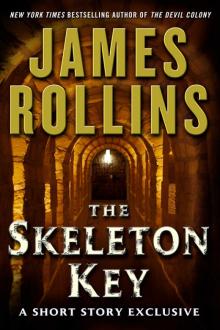 The Skeleton Key
The Skeleton Key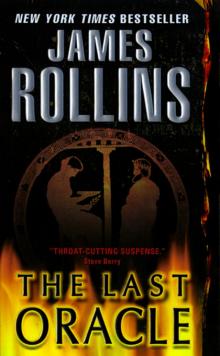 The Last Oracle
The Last Oracle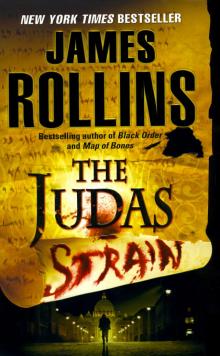 The Judas Strain
The Judas Strain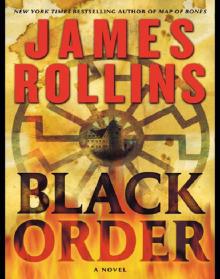 Black Order
Black Order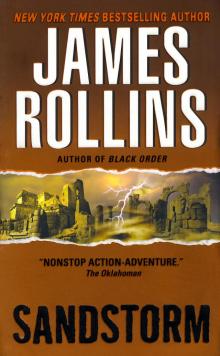 Sandstorm
Sandstorm Ghost Ship
Ghost Ship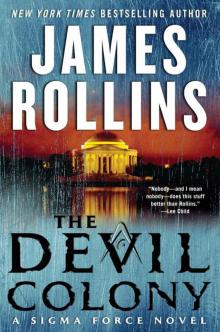 The Devil Colony
The Devil Colony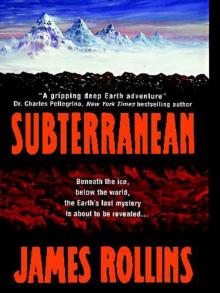 Subterranean
Subterranean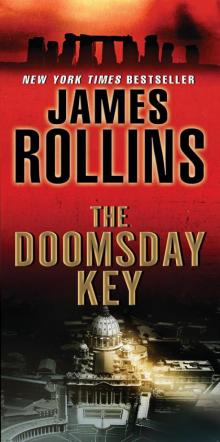 The Doomsday Key
The Doomsday Key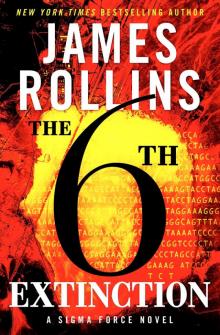 The 6th Extinction
The 6th Extinction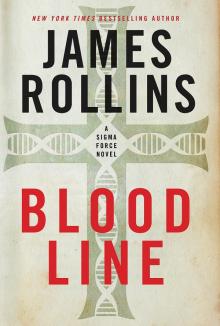 Bloodline
Bloodline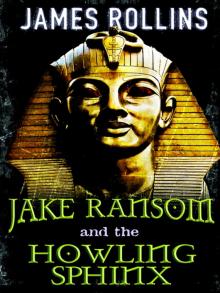 Jake Ransom and the Howling Sphinx
Jake Ransom and the Howling Sphinx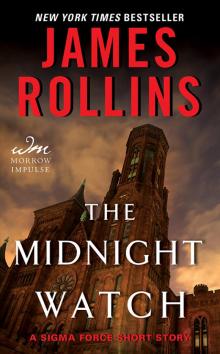 The Midnight Watch
The Midnight Watch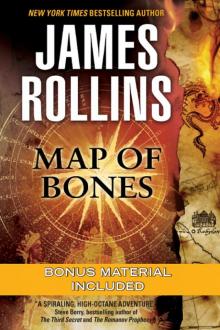 Map of Bones
Map of Bones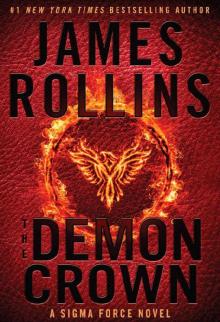 The Demon Crown
The Demon Crown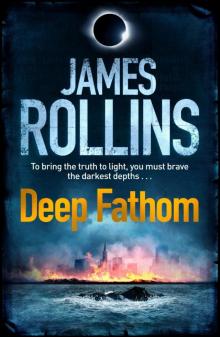 Deep Fathom
Deep Fathom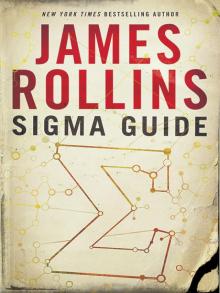 Sigma Guide
Sigma Guide Kowalski's in Love
Kowalski's in Love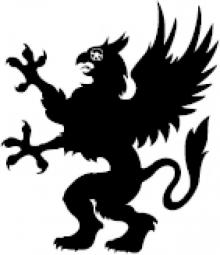 Jake Ransom and the Skull King's Shadow
Jake Ransom and the Skull King's Shadow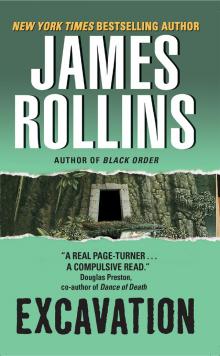 Excavation
Excavation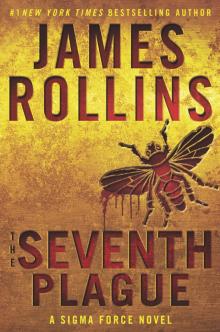 The Seventh Plague
The Seventh Plague Altar of Eden
Altar of Eden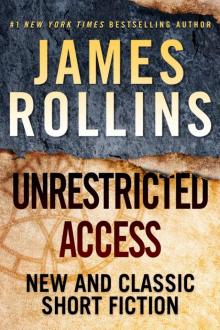 Unrestricted Access: New and Classic Short Fiction
Unrestricted Access: New and Classic Short Fiction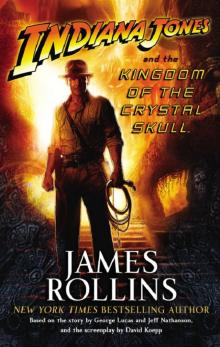 Indiana Jones and the Kingdom of the Crystal Skull
Indiana Jones and the Kingdom of the Crystal Skull Crucible
Crucible The Eye of God
The Eye of God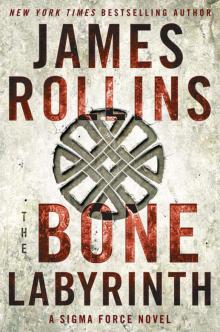 The Bone Labyrinth
The Bone Labyrinth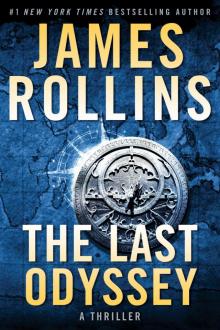 The Last Odyssey: A Thriller
The Last Odyssey: A Thriller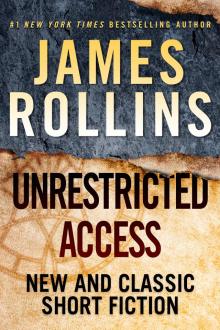 Unrestricted Access
Unrestricted Access Amazonia
Amazonia Blood Brothers: A Short Story Exclusive
Blood Brothers: A Short Story Exclusive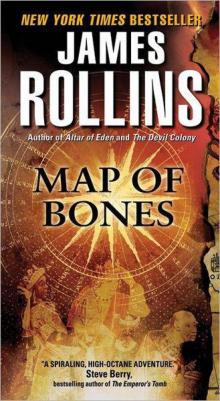 Map of Bones: A Sigma Force Novel
Map of Bones: A Sigma Force Novel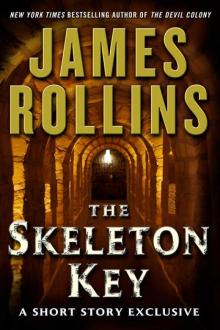 The Skeleton Key (sigma force)
The Skeleton Key (sigma force)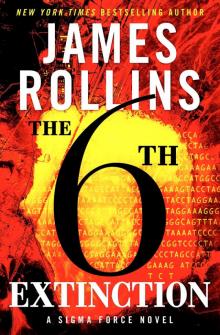 Sigma Force 10 - The Sixth Extinction
Sigma Force 10 - The Sixth Extinction Innocent Blood
Innocent Blood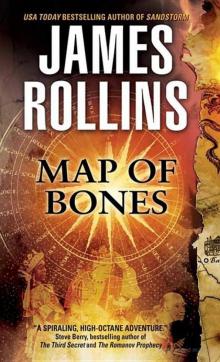 Map of Bones sf-2
Map of Bones sf-2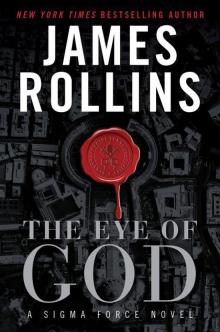 The Eye of God: A Sigma Force Novel
The Eye of God: A Sigma Force Novel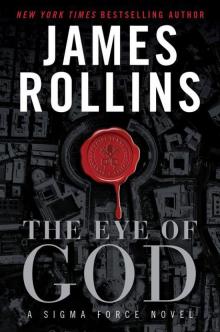 The Eye of God: A Sigma Force Novel sf-9
The Eye of God: A Sigma Force Novel sf-9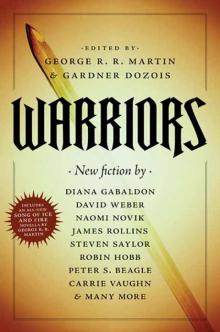 The Pit
The Pit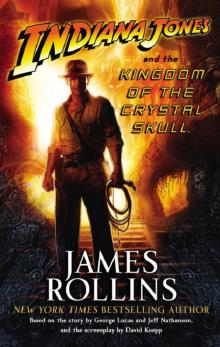 Indiana Jones and the The Kingdom Of The Crystal Skull
Indiana Jones and the The Kingdom Of The Crystal Skull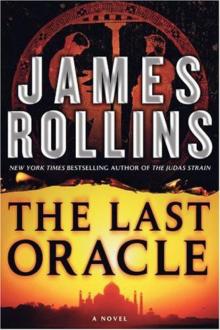 The Last Oracle (2008) sf-5
The Last Oracle (2008) sf-5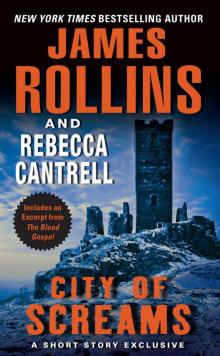 City of Screams
City of Screams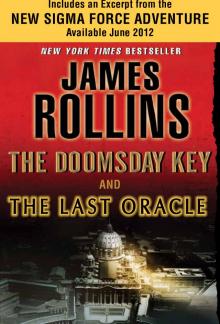 The Doomsday Key and The Last Oracle with Bonus Excerpts
The Doomsday Key and The Last Oracle with Bonus Excerpts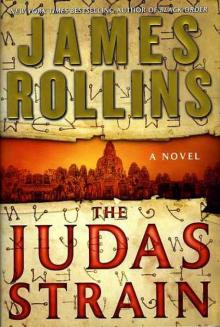 The Judas Strain sf-4
The Judas Strain sf-4 Blood Infernal
Blood Infernal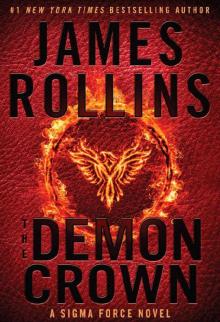 The Demon Crown: A Sigma Force Novel
The Demon Crown: A Sigma Force Novel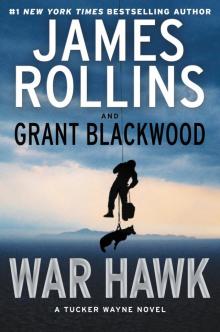 War Hawk: A Tucker Wayne Novel
War Hawk: A Tucker Wayne Novel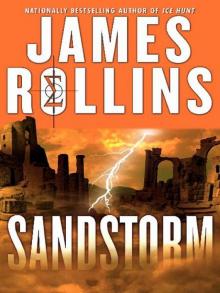 SANDSTORM sf-1
SANDSTORM sf-1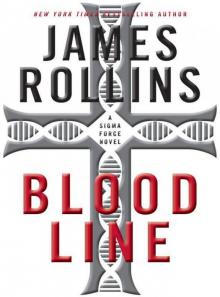 Bloodline: A Sigma Force Novel
Bloodline: A Sigma Force Novel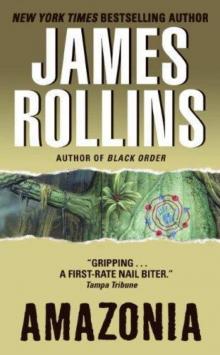 Amazonia: a novel
Amazonia: a novel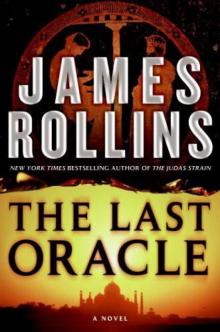 The Last Oracle: A Sigma Force Novel
The Last Oracle: A Sigma Force Novel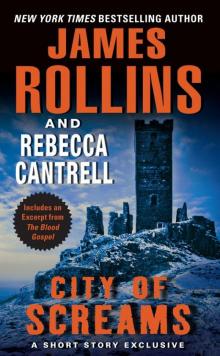 City of Screams (the order of the sanguines)
City of Screams (the order of the sanguines)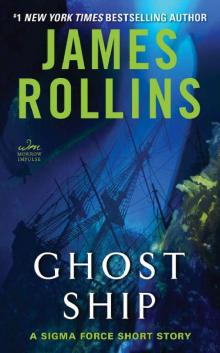 Ghost Ship: A Sigma Force Short Story
Ghost Ship: A Sigma Force Short Story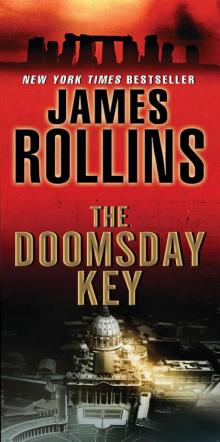 The Doomsday Key: A Sigma Force Novel
The Doomsday Key: A Sigma Force Novel